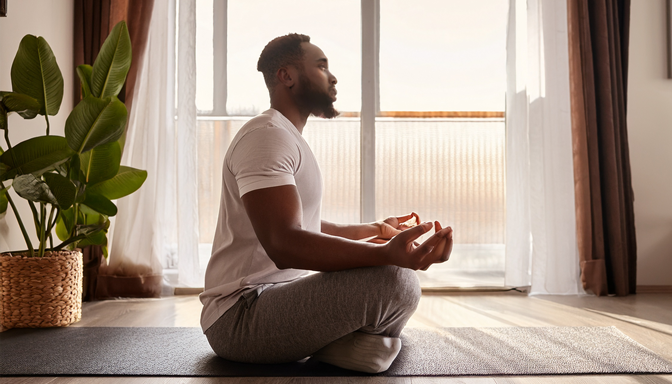12 Proven Ways to Build a Fulfilling Life While Single
12 Ways to Build a Fulfilling Life While Single
Single life isn’t a waiting period, it’s a complete, fulfilling experience in its own right. Recent social research shows that singles often report higher levels of personal growth, stronger friendships, and greater life satisfaction when they embrace their relationship status. This comprehensive guide will help you transform your single life from something you endure into something you genuinely celebrate.
1. Develop Unshakeable Self-Identity

What if the most important relationship you’ll ever have is the one with yourself? Building a solid sense of self means understanding your values, passions, and goals independent of any romantic relationship. People with strong self-identity consistently show more resilience and confidence in all life circumstances.
Your identity acts as your internal GPS, helping you make decisions and stay steady when life gets messy. Lots of people define themselves through their relationships, jobs, or what they’ve accomplished, but real satisfaction comes from knowing who you are when all that external stuff gets stripped away. When you actually know yourself, you stop needing constant validation from others and start making choices that feel right instead of just safe.
The process of developing self-identity requires honest self-reflection and the guts to embrace both your strengths and the stuff you’re still working on. It means questioning what your family expected, what society says you should want, and what your culture assumes is normal, then figuring out what actually feels right for you. This journey gets uncomfortable sometimes, but it’s the difference between living a life that feels genuinely yours versus one that just looks acceptable from the outside.
Identity-Building Practices:
- Write a personal mission statement that reflects your core values
- Identify your authentic interests without worrying about others’ opinions
- Create personal traditions and rituals that matter to you
- Practice saying “no” to things that don’t align with who you are
- Spend time reflecting on what energizes versus drains you
- Develop your unique style and preferences in all areas of life
Self-Discovery Benefits
Understanding yourself deeply creates a domino effect of positive changes everywhere else. When you’re clear about what matters to you, making decisions becomes way less stressful and anxiety-inducing. You naturally start gravitating toward opportunities and people who actually fit with who you are.
This self-awareness also makes your relationships with other people so much better. When you’re comfortable with yourself, you can show up authentically in friendships and at work. You stop bending over backwards to please everyone or compromising your values just to fit in, which leads to connections that actually feel real and satisfying.
2. Create Deep, Meaningful Friendships

Imagine having people in your life who know your quirks, celebrate your victories, and stand by you during your darkest moments. For singles, investing in friendships provides emotional support, shared experiences, and deep connections that rival any romantic relationship in their importance. The Harvard Study of Adult Development, which has followed participants for over 80 years, consistently finds that quality relationships are the strongest predictor of life satisfaction.
Adult friendships require intentionality and effort that many people underestimate. Unlike romantic relationships, which society celebrates and prioritizes, friendships often get pushed aside for career demands, family obligations, or dating drama. But research consistently shows that people with strong friend networks are happier, healthier, and bounce back from setbacks faster than those without them.
The quality of friendships matters far more than quantity. Having three close friends who truly know and support you is infinitely more valuable than having thirty acquaintances. Deep friendships require vulnerability, consistency, and mutual investment. They’re built through shared experiences, honest conversations, and showing up for each other during both celebrations and challenges.
Friendship Enhancement Strategies:
- Schedule regular one-on-one time with close friends
- Be the friend who initiates plans and gatherings
- Practice vulnerability and authentic sharing in conversations
- Support friends through their challenges without trying to “fix” everything
- Create new traditions and shared experiences together
- Join or form a consistent social group around shared interests
Relationship Quality Indicators
Quality friendships aren’t just about having people around – they’re about having the right people around. Healthy friendships feel balanced, supportive, and energizing rather than exhausting. They involve people who get genuinely excited about your wins without any weird jealousy, and who stick around during tough times without making you feel like a burden.
The best friendships also push you to grow in good ways. Real friends aren’t just cheerleaders; they’re people who care enough to tell you when you’re being ridiculous and who inspire you to become a better version of yourself. These relationships create a safety net that gives you the confidence to take risks and chase bigger goals.
3. Pursue Passion Projects with Intensity

Picture yourself so absorbed in an activity that hours pass like minutes, and you emerge feeling energized rather than drained. As a single person, you have unique freedom to dedicate time and energy to projects that truly excite you without compromising for a partner’s preferences or schedule. Research consistently shows that engaging in meaningful activities significantly reduces stress and increases overall well-being.
Here’s what’s amazing about passion projects: they don’t have to make sense to anyone else. Maybe it’s building miniature furniture, learning calligraphy, or starting a podcast about 80s movies. It doesn’t matter if it’s weird, niche, or seemingly pointless. What matters is that it creates genuine excitement and gives you something to look forward to after work.
People often transform their entire outlook on life simply by giving themselves permission to pursue something they genuinely care about. Whether it’s learning to play guitar, starting a blog, building furniture, or volunteering for a cause close to your heart, these projects add color and meaning to everyday life in unexpected ways.
Passion Project Development:
- Identify activities that make you lose track of time
- Set aside dedicated hours weekly for passion pursuit
- Join communities of people with similar interests
- Document and share your progress publicly or privately
- Set challenging but achievable goals within your project
- Don’t worry about monetizing everything you enjoy
Fulfillment Multipliers
Want to know what makes passion projects even more satisfying? When they align with values beyond personal enjoyment. This doesn’t mean everything has to save the world, but there’s something special about projects that help others, create something beautiful, or contribute to your community in some small way.
Progress tracking also amps up the satisfaction significantly. Not compared to other people, just compared to where you started. Setting small goals, tracking improvements, and celebrating those “holy crap, actually did that” moments creates an ongoing sense of accomplishment that becomes genuinely addictive in the best possible way.
4. Travel Solo and Embrace Adventure

There’s something magical about stepping off a plane in a foreign country knowing that every decision, discovery, and challenge ahead is entirely yours to navigate. Solo adventures aren’t just Instagram-worthy experiences, they’re genuine confidence builders that change how you see yourself and what you’re capable of. Travel experiences significantly boost mental health and personal growth according to multiple studies.
When you’re figuring out subway systems in Tokyo or ordering dinner in broken Spanish, you’re building problem-solving muscles and cultural awareness that show up everywhere else in your life. There’s something incredibly empowering about successfully navigating a completely foreign place, especially when you realize you can handle way more weirdness and uncertainty than you thought possible.
But here’s the part nobody talks about: solo travel gives you uninterrupted time with your own thoughts. Without friends to chat with or familiar routines to fall back on, you notice things about yourself that usually get drowned out by daily noise. Tons of solo travelers come back with surprising insights about what they actually want from life, not what they think they should want.
Solo Adventure Planning:
- Start with local day trips to build confidence gradually
- Research destinations thoroughly for safety and logistics
- Use travel apps designed for solo travelers and safety
- Stay in accommodations that encourage social interaction when desired
- Document your experiences through writing, photography, or journaling
- Challenge yourself with increasingly adventurous destinations over time
Adventure Benefits
Here’s what’s cool about solo travel confidence: it doesn’t disappear when you get home. When you’ve figured out subway systems in cities where you don’t speak the language, suddenly work stress and everyday problems feel way more manageable. You’ve got proof that you can handle curveballs, which makes everything else seem less intimidating.
Plus, you come back with stories that actually make people lean in. Not the usual “we went to this place and it was nice” stories, but the “I got completely lost in Prague and ended up having the most incredible conversation with a street musician” kind. These experiences become part of who you are and how you connect with others.
5. Master the Art of Solo Dining and Entertainment

Picture this: you walk into that restaurant you’ve been wanting to try, get seated at the perfect spot by the window, and order exactly what you want without having to negotiate with anyone. Learning to enjoy solo activities isn’t just about being comfortable alone – it’s about discovering how much fun you can have when you’re the only person you need to please. People who enjoy solo activities consistently report higher life satisfaction and better stress management.
Many people avoid solo dining or entertainment because they worry about appearing lonely or being judged by others. But here’s the reality: most people are too focused on their own experiences to spend much time thinking about solo diners or moviegoers. Once you push through that initial discomfort, you discover the freedom of experiencing things at your own pace, without compromise or negotiation.
Solo activities also give you permission to be completely selfish with your attention. Want to spend twenty minutes studying the menu? Go for it. Feel like leaving halfway through a boring movie? Nobody’s stopping you. You get to eat slowly, think your own thoughts, and actually notice details you’d miss if you were busy making conversation.
Solo Activity Mastery:
- Dine alone at restaurants without feeling self-conscious
- Attend movies, concerts, and events independently
- Explore museums and cultural attractions at your own pace
- Take yourself on “dates” to special places you want to experience
- Practice mindful observation during solo outings
- Bring books, journals, or creative projects for companionship when desired
Confidence Building Tips
Building solo activity confidence works like developing any other skill – start small and gradually increase the challenge. Beginning with casual, low-pressure environments like coffee shops or bookstores helps normalize the experience before progressing to dinner restaurants or concert venues.
The key is shifting focus from what others might think to what you’re actually experiencing. Bringing something engaging like a book, sketchpad, or journal provides both entertainment and a natural conversation starter if you choose to engage with staff or other patrons. Most importantly, practicing confident body language and genuine enjoyment of the activity signals to others (and yourself) that this is a choice, not a default.
6. Build a Thriving Home Environment

Your home should be your sanctuary, a place that reflects your personality and supports your lifestyle goals. Creating a home environment that genuinely excites you is crucial for single life satisfaction because you spend significant time there alone. Research demonstrates that our physical environment significantly impacts mood, productivity, and overall well-being.
When you live alone, every decorating decision, organizational system, and comfort upgrade is entirely yours to make. This freedom allows you to create spaces that truly support your habits, hobbies, and daily routines without compromise. Whether that means converting a bedroom into an art studio, creating a meditation corner, or designing the ultimate home office setup, your space can evolve with your interests and needs.
The psychological impact of loving your living space extends beyond mere comfort. When your home reflects your authentic taste and supports your goals, you feel more grounded and confident in other areas of life. There’s something powerful about having a beautiful, functional space to return to each day, especially one that you’ve created entirely according to your own vision and values.
Home Enhancement Strategies:
- Decorate according to your personal taste, not current trends
- Create distinct spaces for different activities and moods
- Invest in quality items that bring you genuine joy
- Organize systems that actually support your lifestyle habits
- Add plants, art, or elements that inspire and energize you
- Design spaces that encourage both solitude and socializing
Psychological Benefits
Living in a space you’ve designed according to your taste creates this deep sense of ownership and control that affects way more than just your home. This feeling of control reduces stress and makes you feel more capable and confident in other parts of your life too.
Your space also becomes something you’re actually proud to show off when friends come over. Whether that’s hosting dinner parties or just feeling comfortable inviting someone over spontaneously, a home that reflects your personality becomes a natural extension of who you are and how you connect with people.
7. Develop Financial Independence and Security

Financial security provides more than just economic stability – it creates options, reduces anxiety, and enables you to make life decisions based on your values rather than financial constraints. Single people have unique opportunities to build wealth and make financial decisions aligned solely with their personal goals and values. Multiple studies show strong correlations between financial security and psychological well-being.
Building financial security as a single person often happens faster than it does for couples, simply because you’re making decisions for one person instead of negotiating different spending habits and financial goals. Every dollar you save, invest, or spend on yourself directly benefits your future without needing anyone else’s approval.
The confidence that comes from financial security shows up everywhere. When you know you can handle surprise expenses, jump on opportunities that excite you, or even take smart risks, you approach both work situations and personal decisions with way more boldness and authenticity. Financial independence isn’t really about the money – it’s about having the freedom to make choices based on what you actually want instead of what you can afford.
Financial Empowerment Actions:
- Create and stick to a detailed monthly budget
- Build an emergency fund covering 3-6 months of expenses
- Start investing in your future through retirement planning
- Learn basic investment strategies and financial literacy
- Set and achieve specific financial milestones
- Consider purchasing property or significant assets when ready
Independence Benefits
Financial independence creates a sense of security that affects every aspect of your life. When you’re not worried about money, you can focus your mental energy on growth, relationships, and experiences rather than survival and anxiety. This security also allows you to be more generous with others and more willing to take calculated risks.
Having financial freedom also means you can make career and life decisions based on what fulfills you rather than just what pays the bills. You can leave toxic work environments, pursue additional education, or take time for personal projects without the panic that comes from living paycheck to paycheck.
8. Prioritize Physical Health and Fitness

Your physical health forms the foundation for everything else you want to accomplish in life. When you feel strong, energetic, and healthy, you approach challenges with greater confidence and resilience. As a single person, you have the flexibility to prioritize health choices without negotiating with a partner’s preferences or schedule. Mayo Clinic research consistently demonstrates that physical activity directly impacts mental well-being and life satisfaction.
Taking care of your health as a single person means making decisions that serve your long-term well-being instead of accommodating someone else’s habits or preferences. You can establish exercise routines that you actually enjoy, plan meals that fuel your specific goals, and create sleep schedules that work for your energy levels and lifestyle.
The mental health benefits of physical wellness are especially important for singles. Regular exercise, decent nutrition, and enough sleep all contribute to better mood, more energy, and sharper thinking. These benefits create positive cycles where you feel better, get more done, and approach life with more optimism and confidence.
Health Optimization Strategies:
- Establish a consistent exercise routine you genuinely enjoy
- Prioritize nutritious meal planning and preparation
- Get regular health check-ups and preventive care
- Maintain a healthy sleep schedule that works for your lifestyle
- Manage stress through healthy coping mechanisms
- Find physical activities that feel like play rather than work
Holistic Wellness Benefits
Physical wellness creates a foundation of energy and resilience that supports everything else you want to accomplish. When your body feels strong and healthy, you’re more likely to take on new challenges, pursue ambitious goals, and maintain the stamina needed for a full, active life.
Regular physical activity also provides natural stress relief and mood enhancement that’s particularly valuable for singles who might not have a partner to help process daily stresses. Exercise becomes a form of self-care that pays dividends in every area of your life, from work performance to social confidence.
9. Continuously Learn and Grow Intellectually

Intellectual curiosity keeps life interesting and your mind sharp. Continuous learning maintains cognitive function and increases life satisfaction by providing ongoing challenges and growth opportunities. Singles often have more time and mental space to pursue intellectual growth without the distractions of relationship maintenance. Research demonstrates that lifelong learning protects against cognitive decline and enhances overall brain health.
Learning new things as an adult feels completely different than it did in school. Without the pressure of grades or meeting someone else’s requirements, you can dive into subjects that genuinely fascinate you and learn at whatever pace works. Whether that’s studying a new language, getting obsessed with history, or trying to understand complex scientific concepts, intellectual growth provides ongoing satisfaction and confidence.
The confidence boost from intellectual development is subtle but really powerful. As you learn more and develop better critical thinking skills, you become more comfortable jumping into diverse conversations, tackling complex problems, and approaching unfamiliar challenges. This intellectual confidence makes both personal relationships and work opportunities way more interesting and accessible.
Learning Acceleration Techniques:
- Take courses in subjects that genuinely fascinate you
- Read extensively across different genres and topics
- Learn new languages or technical skills through apps and courses
- Attend lectures, workshops, and educational events
- Engage in debates and discussions with diverse people
- Document and reflect on your learning journey
Intellectual Growth Benefits
Continuous learning keeps your mind flexible and adaptable, which becomes increasingly important as you navigate an ever-changing world. The ability to learn new things quickly and think critically about complex issues makes you more valuable professionally and more interesting personally.
Intellectual growth also provides endless topics for conversation and connection with others. When you’re genuinely curious about the world and actively learning, you become someone others enjoy talking with because you bring fresh perspectives and interesting questions to every interaction.
10. Give Back Through Volunteering and Service

Contributing to something larger than yourself provides profound meaning and connection that enhances single life satisfaction. Volunteering creates community, offers perspective on your own challenges, and provides opportunities to use your skills in service of causes you care about. Research consistently shows that volunteers report higher levels of life satisfaction, better physical health, and stronger social connections.
Service opportunities let you connect with people who actually share your values, creating natural friendships based on caring about the same stuff rather than just happening to work in the same office or live in the same neighborhood. These relationships often develop organically as you work together toward shared goals, giving you both social connection and the satisfaction of making a real difference.
Volunteering also gives you chances to develop new skills, see things from different perspectives, and sometimes even discover potential career paths you never considered. Lots of people uncover hidden talents or interests through volunteer work, while others find that service experiences help clarify what they actually value and want from life in ways they never expected.
Service Opportunities:
- Identify causes that align with your personal values
- Commit to regular volunteer schedules for consistency
- Use your professional skills for nonprofit organizations
- Mentor young people or those earlier in their careers
- Participate in community improvement projects
- Organize or participate in charitable fundraising events
Service Benefits
Volunteering provides a sense of purpose and meaning that’s often missing from paid work or personal pursuits. When you’re contributing to something that matters beyond your own life, you gain perspective on your challenges and a sense of connection to your community that’s deeply satisfying.
Service also offers opportunities to develop leadership skills, work with diverse groups of people, and see the direct impact of your efforts. These experiences build confidence and provide stories and connections that enrich other areas of your life in unexpected ways.
11. Cultivate Spiritual or Philosophical Practices

Connecting with something larger than yourself – whether through spirituality, philosophy, or personal reflection – provides meaning and perspective that enhances life satisfaction. This doesn’t require religious belief; it’s about developing practices that help you understand your place in the world and find peace with life’s uncertainties. Research indicates that people with spiritual or philosophical practices report greater life satisfaction and resilience.
Spiritual or philosophical practices provide frameworks for understanding difficult experiences and finding meaning in both joy and suffering. They offer communities of people exploring similar questions and provide rituals or practices that create stability during life’s inevitable changes.
These practices also encourage regular self-reflection and introspection, which enhance self-awareness and emotional intelligence. Whether through meditation, prayer, philosophical study, or time in nature, these activities create space for deeper thinking about values, purpose, and what truly matters in life.
Spiritual Development Approaches:
- Explore meditation or mindfulness practices that resonate with you
- Study philosophy or spiritual traditions that spark curiosity
- Spend regular time in nature for reflection and peace
- Practice gratitude and appreciation as daily habits
- Engage with art, music, or literature that moves you
- Reflect regularly on your values and sense of purpose
Transcendence Benefits
Spiritual or philosophical practices provide stability and perspective during difficult times. When you have a framework for understanding life’s challenges and changes, you’re better equipped to handle stress, loss, and uncertainty with grace and resilience.
These practices also connect you with communities of people exploring similar questions about meaning and purpose. Whether through formal religious communities or informal philosophical discussion groups, these connections provide support and intellectual stimulation that enriches your social life.
12. Plan and Execute Life Adventures Independently

Ever notice how some people seem to have all the best stories? They’re usually the ones who don’t wait around for someone else to plan their fun. When you take charge of creating your own adventures, something interesting happens – you become the person others want to hear from at parties. Research shows that people who actively plan and pursue meaningful experiences report higher long-term satisfaction than those who wait for experiences to happen.
Adventure planning develops multiple skills simultaneously: research abilities, decision-making under uncertainty, budget management, and problem-solving when things don’t go according to plan. These skills transfer into other life areas, making you more confident and capable in both personal and professional situations.
The memories and stories created through independent adventures become part of your identity and provide rich material for connecting with others. Whether recounting the challenge of hiking a difficult trail or describing the beauty of a place you discovered, these experiences show your willingness to embrace life fully and inspire others to pursue their own adventures.
Adventure Planning Strategies:
- Create a “life bucket list” of experiences you want to have
- Plan and execute one significant adventure annually
- Save money specifically for experience-based goals
- Research and plan thoroughly for safety and maximum enjoyment
- Document and share your adventures with others who might be inspired
- Use adventures as opportunities for personal growth and challenge
Experience-Rich Living Benefits
Planning and executing your own adventures builds confidence in your ability to make things happen rather than waiting for life to happen to you. This proactive approach to creating experiences transfers into other areas, making you more likely to pursue career opportunities, social connections, and personal goals.
Adventures also provide perspective on everyday problems and challenges. When you’ve successfully navigated complex travel logistics or overcome fears to try something new, work stress and daily frustrations feel more manageable in comparison. These experiences remind you of your own capability and resilience.
Conclusion
Building a fulfilling single life isn’t about settling for less, it’s about creating more. Research consistently shows that singles who embrace their relationship status and invest in personal growth often lead richer, more diverse lives than their coupled counterparts because they have the freedom to focus entirely on their own development and interests.
Your Fulfillment Action Plan
- Choose 3-4 strategies that resonate most strongly with your current situation
- Set specific, measurable goals for each chosen area
- Create accountability systems or find accountability partners
- Celebrate progress regularly, not just major achievements
- Remember that fulfillment is an ongoing practice, not a final destination
- Share your journey to inspire other singles in your life
Remember: Your single life isn’t practice for your “real” life, it IS your real life, and it deserves to be extraordinary.
Affiliate Disclaimer: As an affiliate of other sites and as an Amazon Associate we earn from qualifying purchases. Some links in this article may be affiliate links where a purchase would provide us with a commission. We only recommend products and services we truly believe can help you on your personal growth journey.
Advice Disclaimer: This advice is for informational and entertainment purposes only and not a substitute for professional counseling, therapy, financial, legal, or medical advice. You are responsible for your own decisions and actions. For serious issues, please consult qualified professionals.
Surprising Myths About Single Life: 7 Misconceptions to Stop Believing
Surprising Myths About Single Life: 7 Misconceptions to Stop Believing
“You’re single? Don’t worry; you’ll find someone soon!”
Ah yes, the comforting words of your well-meaning Aunt Karen at every family gathering. Single life has a bad rap—society often portrays it as a waiting room for true happiness. But let’s pause for a sec: what if singlehood isn’t the waiting room, but the main event?
It’s time we flip the script and debunk some surprisingly stubborn myths about being single. Grab your favorite snack (that you don’t have to share, of course) and get comfortable. Here are 7 misconceptions about single life it’s high time we leave behind.
Myth #1: Single Means Lonely

Contrary to popular belief, single doesn’t automatically mean lonely. In fact, research shows singles often have broader and richer social connections compared to married counterparts. So, if you’re single, chances are your phone is buzzing with messages from your friends, family, or your hiking group—probably more than some of your partnered pals.
Myth #2: Singles Are Miserable

Can we stop assuming that happiness requires a romantic relationship? Studies indicate that single people report high levels of happiness, personal growth, and satisfaction. Happiness doesn’t discriminate based on relationship status—it depends far more on what you choose to do with your life.
Myth #3: Singlehood Equals Selfishness

Single people often hear they’re too self-centered or picky. But focusing on your growth, career, or health isn’t selfish—it’s self-care. Singlehood can be a time of significant personal development, and there’s absolutely nothing selfish about investing in yourself.
Myth #4: Singles Lack Stability

Here’s a fun twist: Single individuals often have stronger financial independence and flexibility. They have more freedom to make choices about spending, investing, or moving without negotiation. Far from unstable, singles often build impressive personal stability.
Myth #5: Being Single Means You’re ‘Incomplete’

Let’s get real—people are whole on their own. The idea of “finding your other half” is romanticized, sure, but it overlooks the fact that you were born complete. A partner might enhance your life, but you’re already a complete human with or without one.
Myth #6: Singles Don’t Understand Relationships

If you’ve been single for more than five minutes, you’ve likely received unsolicited relationship advice from someone who assumes you just don’t get it. But interestingly, singles often have clearer insights into relationships because they’re observing from the outside. Being single can give you perspective that’s harder to achieve when you’re inside the drama yourself.
Myth #7: Singles Secretly Envy Couples

Believe it or not, many singles choose singlehood and love it. They see couples navigating challenges and appreciate their own freedom, spontaneity, and decision-making. Just because someone is single doesn’t mean they’re secretly longing for couplehood. It might just be their preference.
So, next time Aunt Karen offers her pity or attempts matchmaking, smile, pass the snacks you don’t need to share, and remember: Being single isn’t second-best—it’s simply another perfectly valid, fulfilling way to live.
Keep scrolling for more insights into single life that’ll make you love your freedom even more.
Affiliate Disclaimer: As an affiliate of other sites and as an Amazon Associate we earn from qualifying purchases. Some links in this article may be affiliate links where a purchase would provide us with a commission. We only recommend products and services we truly believe can help you on your personal growth journey.
Advice Disclaimer: This advice is for informational and entertainment purposes only and not a substitute for professional counseling, therapy, financial, legal, or medical advice. You are responsible for your own decisions and actions. For serious issues, please consult qualified professionals.
15 Powerful Self-Care Strategies for Singles to Instantly Boost Confidence
15 Powerful Self-Care Strategies for Singles to Instantly Boost Confidence
Being single isn’t a setback—it’s an opportunity for incredible personal growth and self-discovery. A 2019 Pew Research Center study reveals that personal identity is increasingly defined by individual achievements and personal development, offering singles a unique chance to focus on self-improvement.
1. Morning Mindset Reset: Rewire Your Internal Dialogue

Neuroscientific research from Harvard Medical School demonstrates that our brain’s neuroplasticity allows us to reshape thought patterns through consistent practice. Each morning presents an opportunity to intentionally reset your mental state, transforming self-critical thoughts into empowering narratives that build lasting confidence and resilience.
Key Strategies
- Creating a 5-minute gratitude journal
- Replacing self-critical thoughts with compassionate self-talk
- Developing a personalized morning affirmation routine
- Practicing daily positive visualization
- Challenging negative thought patterns systematically
Neurological Benefits
A study published in the Journal of Positive Psychology shows that consistent positive self-dialogue can:
- Reduce stress hormones
- Improve neural connectivity
- Enhance overall mental resilience
2. Fitness as Self-Love, Not Punishment

Research from the Mayo Clinic reveals that exercise is far more than physical transformation—it’s a powerful mechanism for mental health and self-confidence. Physical activity serves as a metaphorical and literal journey of overcoming challenges, building not just muscular strength but mental fortitude that directly translates to increased self-assurance.
Holistic Fitness Approaches
- Choose movement you genuinely enjoy
- Set performance-based goals instead of appearance goals
- Explore diverse fitness options: dance, hiking, yoga, martial arts
- Practice mind-body connection exercises
- Track progress through personal achievement metrics
Budget-Friendly Fitness Options
- Free YouTube workout channels
- Community center classes
- Bodyweight exercises
- Fitness apps with free versions
- Outdoor activity groups
3. Create a Personal Development Reading List

Psychological research from Stanford University demonstrates that continuous learning keeps the brain adaptable and boosts confidence. Reading isn’t just about consuming information—it’s a transformative practice of expanding perspectives, challenging existing beliefs, and developing a more nuanced understanding of yourself and the world.
Strategic Reading Approaches
- Explore personal growth literature
- Include memoirs of inspiring single individuals
- Cover topics like emotional intelligence and self-improvement
- Join book clubs or reading challenges
- Take notes and reflect on key insights
Recommended Starter Books
- “Attached” by Amir Levine
- “The Gifts of Imperfection” by Brené Brown
- “Atomic Habits” by James Clear
- “The Power of Now” by Eckhart Tolle
- “Mindset” by Carol Dweck
4. Master a New Skill Every Quarter

LinkedIn’s Workplace Learning Report emphasizes that skill acquisition is a critical component of personal and professional growth. Each new skill represents a small victory, building a portfolio of personal achievements that incrementally boost your confidence and demonstrate your capacity for continuous learning.
Skill Development Strategies
- Take online courses
- Use platforms like Coursera or edX
- Choose skills that excite you: coding, photography, cooking
- Join skill-based community groups
- Document and showcase your learning journey
Skill Learning Tips
- Start small and consistent
- Join online communities for support
- Celebrate every milestone
- Share your progress publicly
- Seek mentorship or guidance
5. Cultivate a Robust Social Network

Gallup Research shows that strong social connections are crucial for mental well-being and personal confidence. Meaningful relationships provide emotional support, diverse perspectives, and opportunities for growth that can’t be achieved in isolation.
Network-Building Strategies
- Join hobby-based meetup groups
- Attend professional networking events
- Leverage social media for meaningful connections
- Volunteer for causes you’re passionate about
- Initiate regular social gatherings
Connection Benefits
The American Psychological Association confirms that strong social networks can:
- Buffer against stress and isolation
- Provide emotional validation
- Offer practical support during challenges
- Create opportunities for shared experiences
- Enhance overall life satisfaction
6. Financial Empowerment and Independence

A study in the Journal of Financial Therapy demonstrates that financial literacy directly correlates with personal confidence and reduced anxiety. Financial independence isn’t just about wealth accumulation—it’s about creating security, options, and the freedom to make choices aligned with your values.
Financial Wellness Practices
- Create a detailed monthly budget
- Build an emergency fund covering 3-6 months of expenses
- Develop an investment strategy appropriate for your goals
- Learn basic financial literacy principles
- Set specific, measurable financial milestones
Money Management Tools
- Budgeting apps like Mint or YNAB
- Financial education platforms like Khan Academy
- Investment platforms with educational resources
- Financial podcasts and books
- Community financial literacy workshops
7. Mindfulness and Meditation Practice

Harvard Medical School research demonstrates that regular meditation significantly reduces anxiety and increases self-awareness. Mindfulness isn’t just a relaxation technique—it’s a profound practice that enhances your relationship with yourself and cultivates presence in every aspect of life.
Meditation Approaches
- Start with guided meditation apps like Headspace or Calm
- Practice daily 10-minute meditation sessions
- Explore different techniques (breathing, body scan, loving-kindness)
- Join local meditation classes or online communities
- Integrate mindful moments throughout your day
Scientific Benefits
The American Psychological Association cites these research-backed benefits:
- Reduced rumination
- Decreased stress response
- Improved attention and focus
- Enhanced emotional regulation
- Greater self-compassion
8. Professional Development and Career Growth

The Journal of Vocational Behavior shows that ongoing professional development directly correlates with confidence and life satisfaction. Career growth isn’t just about advancement—it’s about purpose, contribution, and continuously expanding your capabilities.
Career Enhancement Strategies
- Take specialized online courses in your field
- Seek mentorship relationships
- Attend industry conferences and workshops
- Build a strong professional online presence
- Request stretch assignments at work
Development Resources
- Industry-specific certifications
- Professional association memberships
- LinkedIn Learning courses
- Toastmasters for communication skills
- Industry podcasts and newsletters
9. Creative Expression and Hobby Development

Research published in the Journal of Positive Psychology shows that creative pursuits significantly boost mood and confidence. Creative expression isn’t just about producing art—it’s about discovering new aspects of yourself, developing patience, and experiencing flow states that enhance overall well-being.
Creativity-Boosting Activities
- Try art classes (painting, pottery, photography)
- Learn a musical instrument
- Explore writing or journaling
- Take up dance or theater
- Develop cooking or gardening skills
Benefits of Creative Practice
- Reduces stress and anxiety
- Provides accomplishment experiences
- Develops patience and persistence
- Creates opportunities for social connection
- Builds confidence through skill development
10. Digital Detox and Healthy Boundaries

Research from the University of Pennsylvania demonstrates that limiting social media use significantly improves mental well-being. Digital wellness isn’t about rejecting technology—it’s about establishing intentional boundaries that protect your mental space and authentic connections.
Digital Wellness Strategies
- Set specific screen-free times daily
- Create tech-free zones in your home
- Practice mindful social media consumption
- Use apps that track and limit screen time
- Prioritize in-person interactions
Mental Health Benefits
- Reduced comparison and FOMO
- Improved sleep quality
- Enhanced present-moment awareness
- More authentic connections
- Greater control over attention and focus
11. Travel and Solo Adventures

A study in the Journal of Personality and Social Psychology reveals that travel experiences provide lasting confidence benefits. Solo adventures aren’t just about seeing new places—they’re opportunities to test your resilience, expand your comfort zone, and develop self-reliance in unfamiliar situations.
Solo Travel Approaches
- Start with local day trips or weekend getaways
- Join group tours for solo travelers
- Use travel apps designed for safety and connection
- Document your experiences through journals or photography
- Challenge yourself with increasingly adventurous destinations
Confidence-Building Benefits
- Problem-solving in unfamiliar environments
- Cultural intelligence development
- Independence reinforcement
- Social skill enhancement
- Perspective-broadening experiences
12. Emotional Intelligence Development

Harvard Business Review research shows that emotional intelligence is more predictive of success than IQ. EQ isn’t just about understanding emotions—it’s about leveraging emotional awareness to navigate relationships, make better decisions, and respond effectively to challenges.
EQ Enhancement Methods
- Practice self-awareness through reflection
- Develop active listening skills
- Learn to identify and name emotions
- Attend workshops on emotional intelligence
- Seek feedback on emotional communication
Professional Applications
- Better conflict resolution
- More effective leadership
- Enhanced teamwork capabilities
- Improved client/customer relationships
- Greater adaptability during change
13. Nutrition and Holistic Wellness

The International Journal of Behavioral Nutrition and Physical Activity documents the powerful mind-body connection between nutrition and mental well-being. Nutrition isn’t just about physical health—it’s self-care that impacts energy levels, mood stability, and cognitive function.
Wellness Nutrition Strategies
- Focus on whole, unprocessed foods
- Plan and prepare meals in advance
- Stay well-hydrated throughout the day
- Learn basic nutrition principles
- Develop a healthy relationship with food
Science-Backed Benefits
- Improved mood stability
- Enhanced cognitive function
- Increased energy levels
- Better stress management
- Stronger immune function
14. Sleep Hygiene and Recovery

The Journal of Sleep Research demonstrates that quality sleep is fundamental to cognitive function and emotional regulation. Sleep isn’t a luxury—it’s essential maintenance that affects every aspect of your mental and physical performance.
Sleep Optimization Techniques
- Maintain a consistent sleep-wake schedule
- Create a relaxing bedtime routine
- Design a comfortable sleep environment
- Minimize screen time before bed
- Manage caffeine and alcohol consumption
Recovery Benefits
- Enhanced emotional regulation
- Improved memory consolidation
- Better immune function
- Reduced stress hormone levels
- Increased daytime energy and focus
15. Continuous Self-Reflection and Journaling

Research in the Journal of Personality and Social Psychology shows that regular self-reflection accelerates personal growth and insight development. Journaling isn’t just record-keeping—it’s a powerful dialogue with yourself that reveals patterns, clarifies values, and deepens self-understanding.
Reflective Practice Techniques
- Use guided journal prompts
- Practice gratitude journaling
- Reflect on personal growth milestones
- Explore values clarification exercises
- Try both digital and handwritten journaling
Psychological Benefits
- Increased self-awareness
- Improved emotional processing
- Enhanced problem-solving abilities
- Clearer personal values identification
- Greater sense of purpose and direction
Conclusion
Confidence is a skill that can be systematically developed through intentional practices. Psychological Science confirms that with consistent effort and the right strategies, anyone can build robust self-confidence that transforms their experience of single life.
Your Confidence-Building Roadmap
- Choose 3-5 strategies to implement this week
- Track your progress in a dedicated journal
- Be patient and kind to yourself during the process
- Celebrate small victories along the way
- Connect with supportive communities who share your growth mindset
Affiliate Disclaimer: As an affiliate of other sites and as an Amazon Associate we earn from qualifying purchases. Some links in this article may be affiliate links where a purchase would provide us with a commission. We only recommend products and services we truly believe can help you on your personal growth journey.
Advice Disclaimer: This advice is for informational and entertainment purposes only and not a substitute for professional counseling, therapy, financial, legal, or medical advice. You are responsible for your own decisions and actions. For serious issues, please consult qualified professionals.
Single LifePositive Flip2025-08-13T17:26:34-06:00






